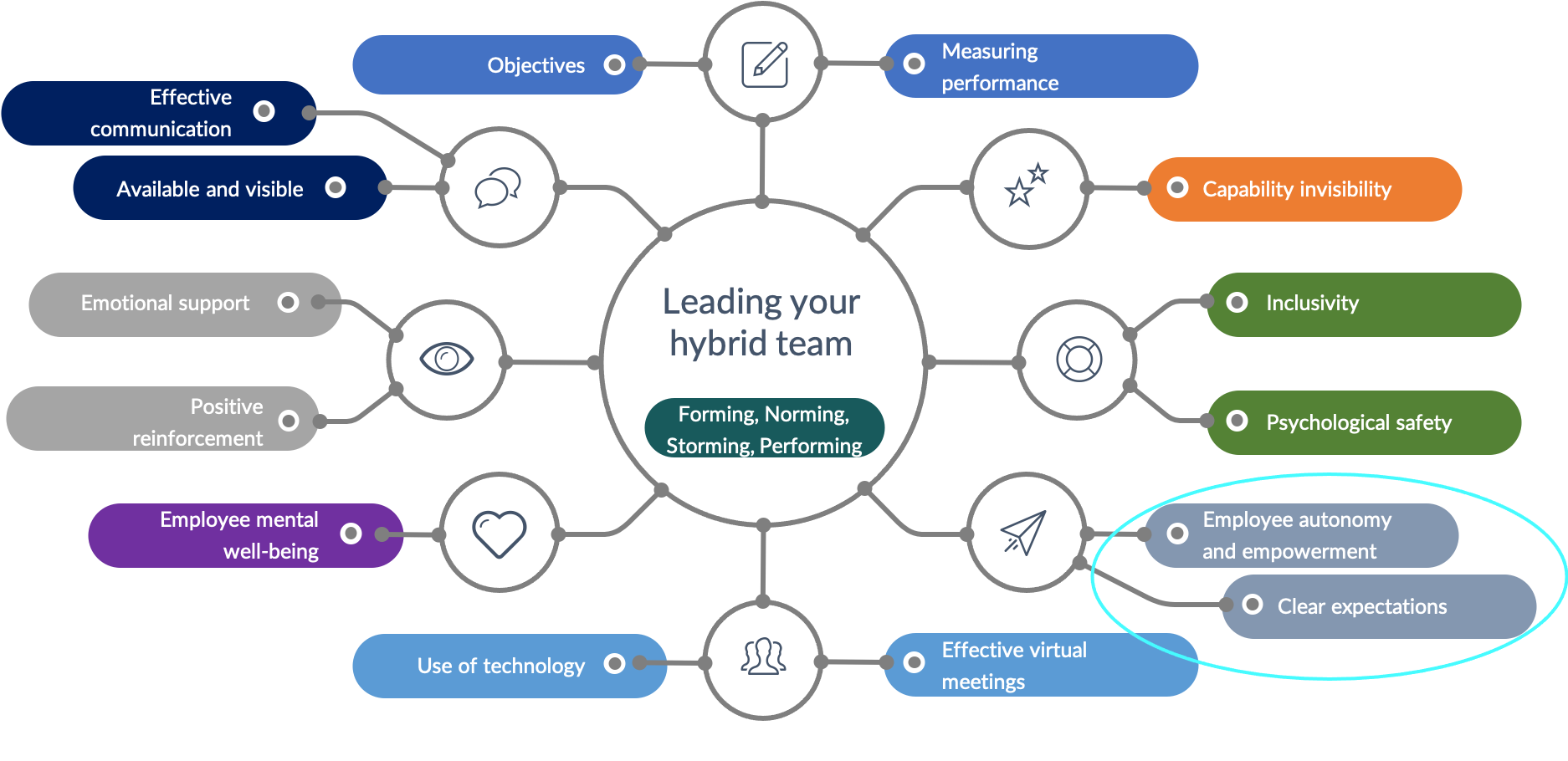The Future of Work Is The Future Of Leadership - Autonomy, Empowerment and Clear Expectations
At the start of February, I wrote an article called “How To Successfully Lead Your Hybrid Team.”
I have also been doing a series of videos called “The Future of Work Is The Future of Leadership.”
The driver for both the article, the videos and this article is that the future of work is hybrid and the fact that most of our leaders are not ready, They have not done this before and are just not equipped.
If we do not change this situation, It is going to have devastating effect on our hybrid workforce. Increased stress, uncertainty, anxiety, fatigue and burnout will result and no employer should be prepared to accept that as a future state. No one.
This is uncharted territory. Let’s chart it.
Employee autonomy, empowerment and clear expectations
This is my hybrid leadership model that is evolving the more I write about it.
Let’s start with the need for employee autonomy, empowerment and clear expectations.
If you are a leader trying to lead a hybrid team with micromanagement, you are dead in the water.
Unless you are using surveillance software to check your employees are on their computers and you monitor what they are doing so that you can intervene when there is a decline in the speed of keystrokes, you need to change your leadership approach.
AUTONOMY AND EMPOWERMENT
Employees should be given autonomy and empowered to deliver the desired outcomes as they see best.
As a leader of hybrid teams you have to trust your employees to do the right thing, and with the right leadership, they will.
It is critically important have as a leader you understand the difference between empowerment and delegation.
You may have delegated, but that does not mean you have empowered. It doesn’t just happen organically.
The team and team members need to be empowered and have the autonomy to decide how to work and then you can delegate the tasks and outcome you wish to have accomplished.
If you have not given empowerment, you can delegate all you like, but nothing will happen as everyone is waiting on you for direction.
When you truly empower, you give the team space to set their direction and take action. You give them the making rights and ownership.
You make sure that you are there to support them when they need you and to help them remove obstacles they may encounter along the way.
Delegation is not management by abdication. You are there to guide but not control.
If you have not done it before, empowering your team can be scary and uncomfortable. You are handing back challenges to the team when they bring them to you rather than taking control and fixing it yourself. The actions they should take will have been discussed, explored and determined, but ultimately they have to go away and take those actions.
CLEAR EXPECTATIONS
Be absolutely clear about what you expect from your employees. What is it they are to deliver? When is it needed? What budget do they have? How often are you going to have a check-in?
Ensure that you get your employees to play back to you what you have said so that there is no doubt that you are both on the same page.
Let your employees know that in addition to the regular check-ins you are available when you are needed. Your role is to provide guidance and support.
SUMMARY
When you truly provide autonomy, empower and delegate effectively, you are developing and growing your team. In the long run, you will have time to focus on the things you should be focussing on as a leader.
You will be motivating and inspiring; building confidence and self-belief; and creating leaders for the future.
If you or your peers are struggling with empowering and delegating and making the fundamental shift from command and control to empowerment and trust, talk to me and let’s chart the uncharted together.


